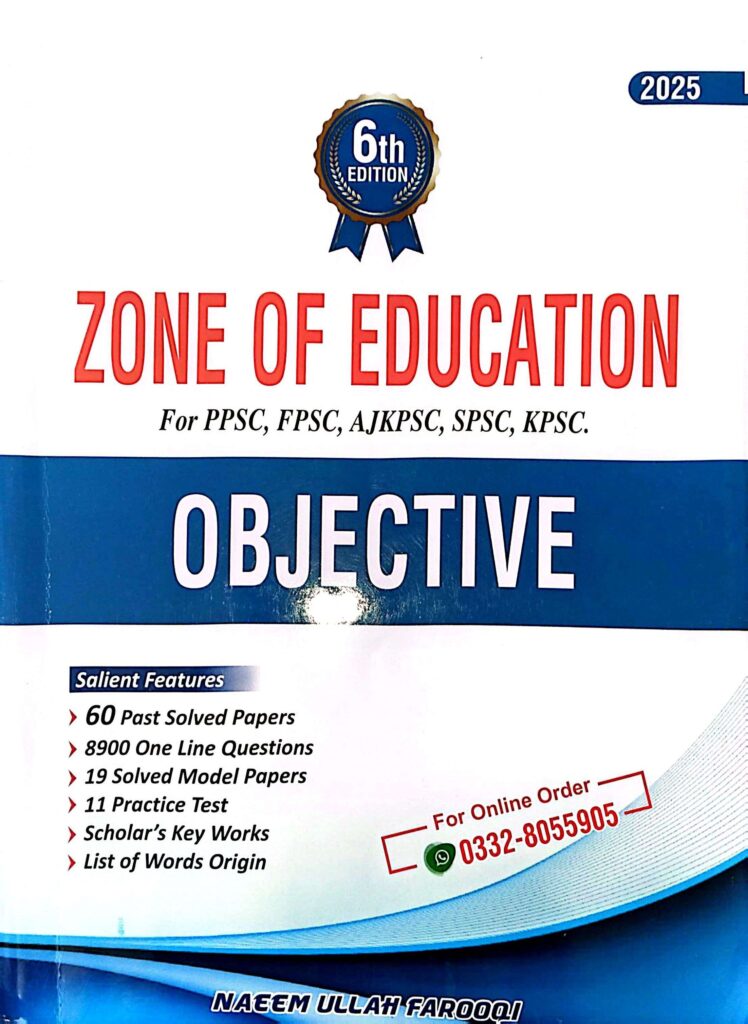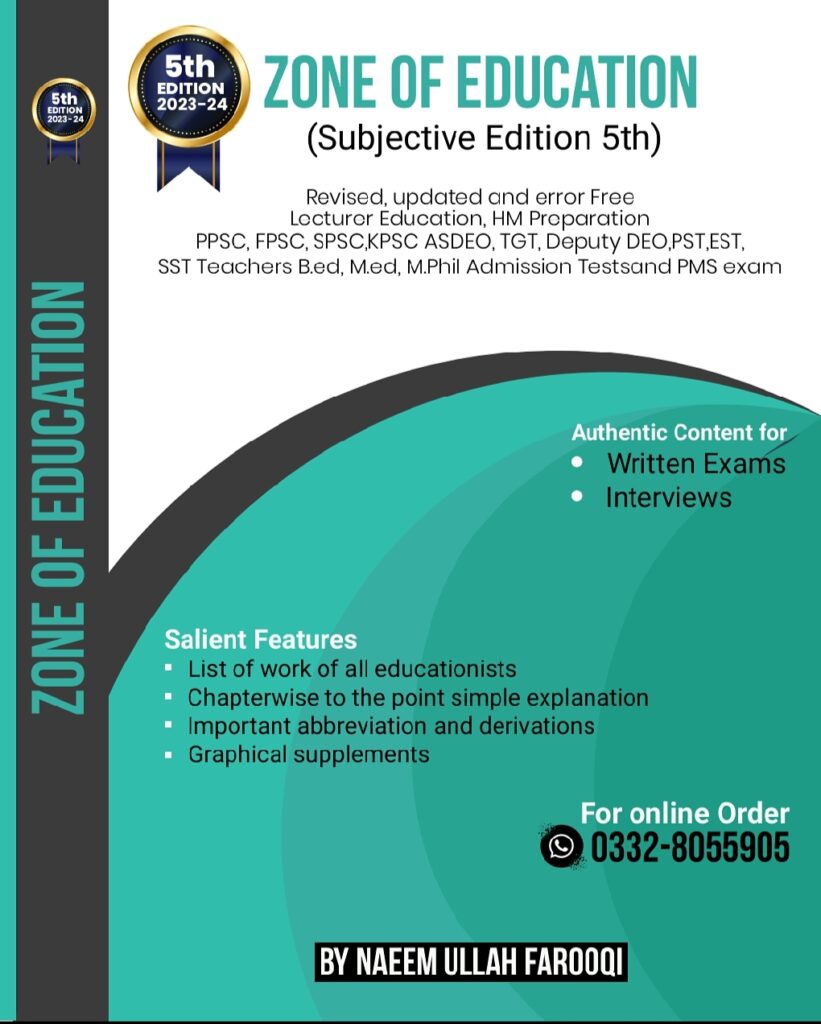Psychology
If a student is 11 years old, from a psychological point of view, he/she is placed in:
· (a) Childhood
· (b) Boyhood
· (c) Adolescence
· (d) Youth
135. A need is to food as a motive is to:
· (a) Hunger
· (b) A certain kind of food
· (c) Money with which to buy food
· (d) The smell of food
136. A need is to hunger as a stimulus is to:
· (a) Food
· (b) A particular kind of food
· (c) Money with which to buy food
· (d) The smell of food
137. Motivation is best defined in terms of:
· (a) Internal forces within the individual
· (b) External forces applied on the individual
· (c) Punishment applied to an individual
· (d) Measures applied to promote learning
138. Belonging, affection, and status are best classified as:
· (a) Drives
· (b) Primary needs
· (c) Wants
· (d) Motives
139. Which come third in series in Maslow’s classification:
· (a) Esteem
· (b) Love
· (c) Safety
· (d) Physiological
140. Most of the differences in interest are due to the difference in:
· (a) Sex
· (b) Age
· (c) Experiential background
· (d) Opportunity
141. The interest of boys in sports reaches its peak in:
· (a) Early childhood
· (b) Pre-adolescent period
· (c) Early adolescent
· (d) Late adolescent
142. Change in behavior results from:
· (a) Motivation alone
· (b) Learning alone
· (c) Maturation and learning
· (d) None of the above
143. At birth, the average weight of a full-term baby is:
· (a) Boys, 8 pounds; Girls, 7 pounds
· (b) Boys, 7 pounds; Girls, 8 pounds
· (c) Boys, 7 pounds; Girls, 7 pounds
· (d) Boys, 8 pounds; Girls, 8 pounds
144. At birth, which of the following is closest to its final adult level:
· (a) Brain weight
· (b) Number of brain cells
· (c) The number of bones
· (d) The length of arms and legs
145. An emotion is best defined as:
· (a) The individual’s response to a situation
· (b) A reaction to emotional stimuli
· (c) An excited state arising in response to stimuli
· (d) Irrational behavior
146. Emotional response to symbolic stimuli is primarily the result of:
· (a) Maturation
· (b) Learning
· (c) Adjustment
· (d) Increased alertness
147. The first emotional expression to appear in infants is:
· (a) Fear
· (b) Delight
· (c) General excitement
· (d) Anger
148. The greatest degree of insecurity is due to:
· (a) Affection
· (b) Anger
· (c) Fear
· (d) Hatred
149. The best-known study on social development is that of:
· (a) Bridges
· (b) Gesell
· (c) Parten
· (d) Shirley
150. The most fundamental agency in the life of boys and girls is:
· (a) The school
· (b) The mosque
· (c) The home
· (d) Society
151. Mental development is closely parallel to an increase in:
· (a) Ability to memorize
· (b) Ability to get along with others
· (c) Ability to profit from experience
· (d) The number of new cells
152. Intelligence as presently defined is synonymous with:
· (a) Native capacity
· (b) Ability to reason
· (c) Emotional control
· (d) Scholastic aptitude
153. Which is measured by an intelligence test:
· (a) Verbal ability
· (b) Mechanical ability
· (c) Numerical ability
· (d) Spatial ability
154. Intelligence tests measure:
· (a) General aptitude
· (b) Academic potential
· (c) Innate aptitude
· (d) Spatial
155. Ahmad is bright, Akbar is dull. They are now six years of age. As they grow older, the difference in their IQ will probably:
· (a) Increase
· (b) Decrease
· (c) Remain relatively constant
· (d) Disappear
156. The mental age of a child is a measure of:
· (a) Level of mental maturity
· (b) Rate of mental growth
· (c) Intellectual status
· (d) Intelligence quotient (IQ)
157. IQ is an index of:
· (a) Level of mental development
· (b) Rate of mental development
· (c) Intellectual status
· (d) Degree of mental maturity
158. What type of health of a child is of utmost importance that an elementary school teacher should keep in mind for the growth of the child:
· (a) Physical
· (b) Mental
· (c) Emotional
· (d) All of the above
159. When do we learn better according to Thorndike’s Laws of Exercise?
· (a) Practice it
· (b) Like it
· (c) Hate it
· (d) Are ready for it
160. How would you define psychology?
· (a) Study of soul
· (b) Study of behavior
· (c) Study of consciousness
· (d) Study of mind
161. Jean Piaget was born in:
· (a) USA
· (b) Switzerland
· (c) Italy
· (d) France
162. The subject matter of educational psychology is inferred from:
· (a) Problems being faced by parents
· (b) Problems being faced by educational administrators
· (c) Problems being faced by textbook writers
· (d) Problems being faced by classroom teachers in the classrooms
163. An internal state of mind of a person, which forces them to do something and is aroused as a result of some internal need of the person is called:
· (a) Thinking
· (b) Perception
· (c) Motivation
· (d) Learning
164. The age measured by an intelligence test is called:
· (a) Chronological
· (b) Mental
· (c) Mature
· (d) Physical
165. WAIS is the intelligence test for:
· (a) Early childhood students
· (b) Primary School students
· (c) High School students
· (d) Both b & c
166. The growth and learning of a child is affected by:
· (a) Heredity
· (b) Environment
· (c) Both a & b
· (d) Neither a nor b
167. Control is an important characteristic of:
· (a) Introspection method
· (b) Observation method
· (c) Experimental method
· (d) Case study method
168. Cognitive development deals with the development of:
· (a) Child perception
· (b) Child mind
· (c) Child reasoning
· (d) Child thinking
JOIN ZONE OF EDUCATIONPK!
Discover the most comprehensive and reliable pedagogy resources in Pakistan, curated for competitive exam success. Our content covers all competitive exam MCQs, including PPSC, FPSC, AJKPSC, SPSC, and more. Designed to empower learners with top-notch material and insights, trust us for your preparation journey!



